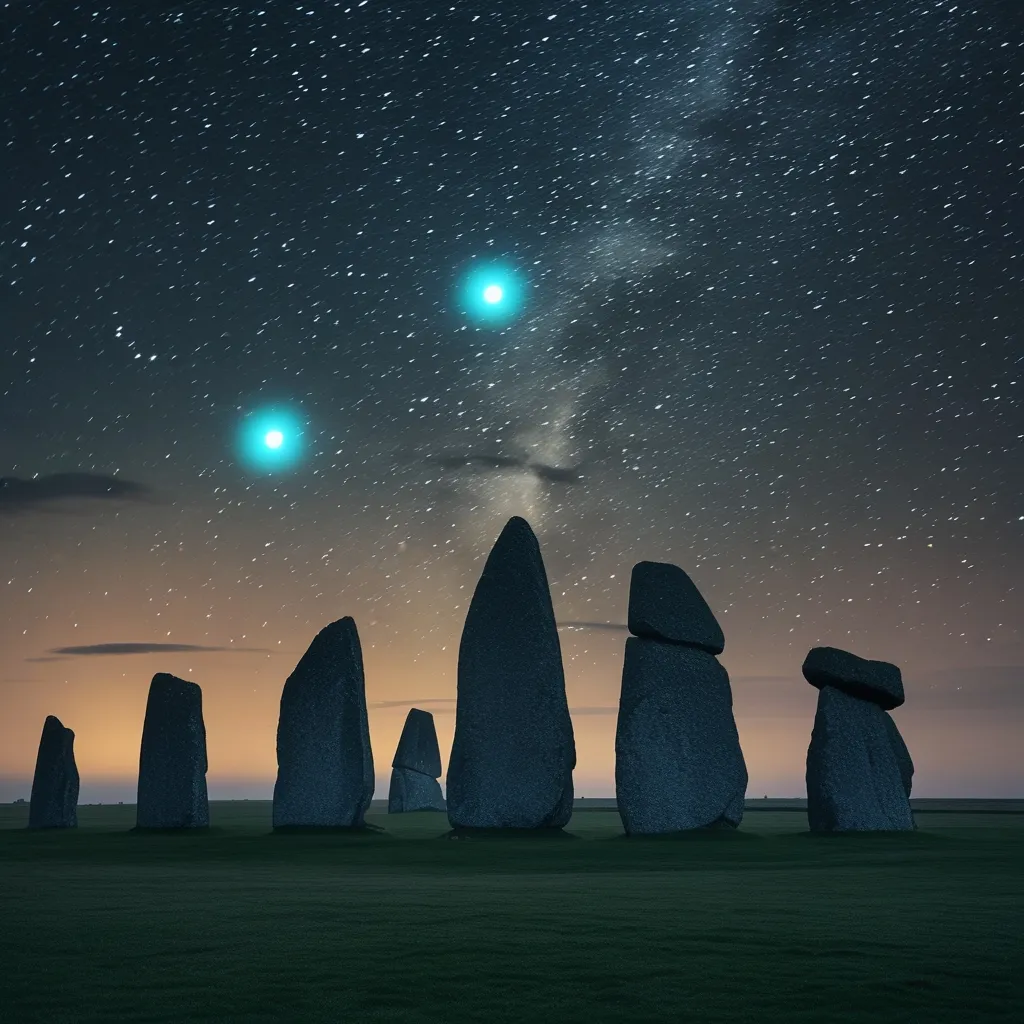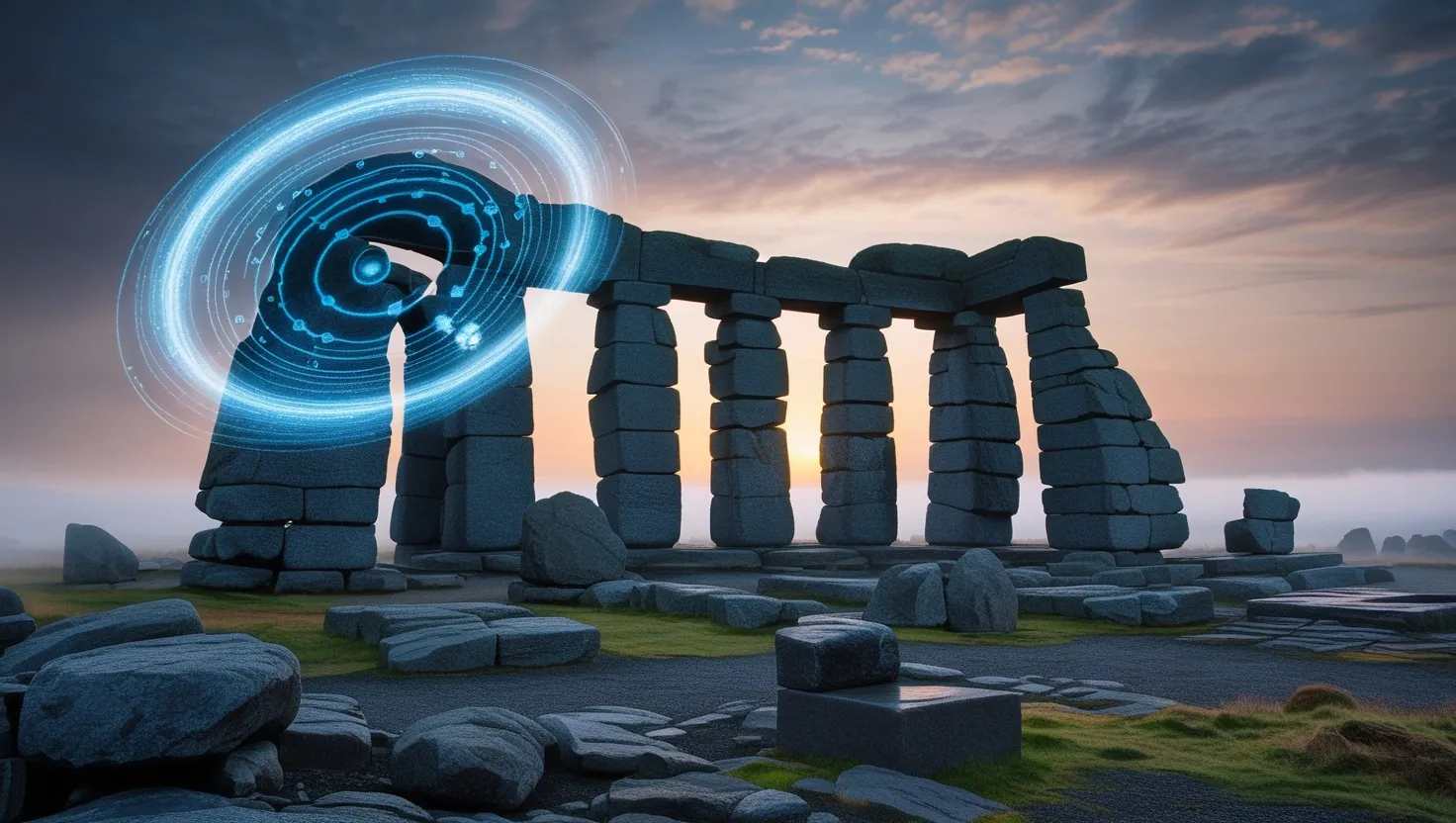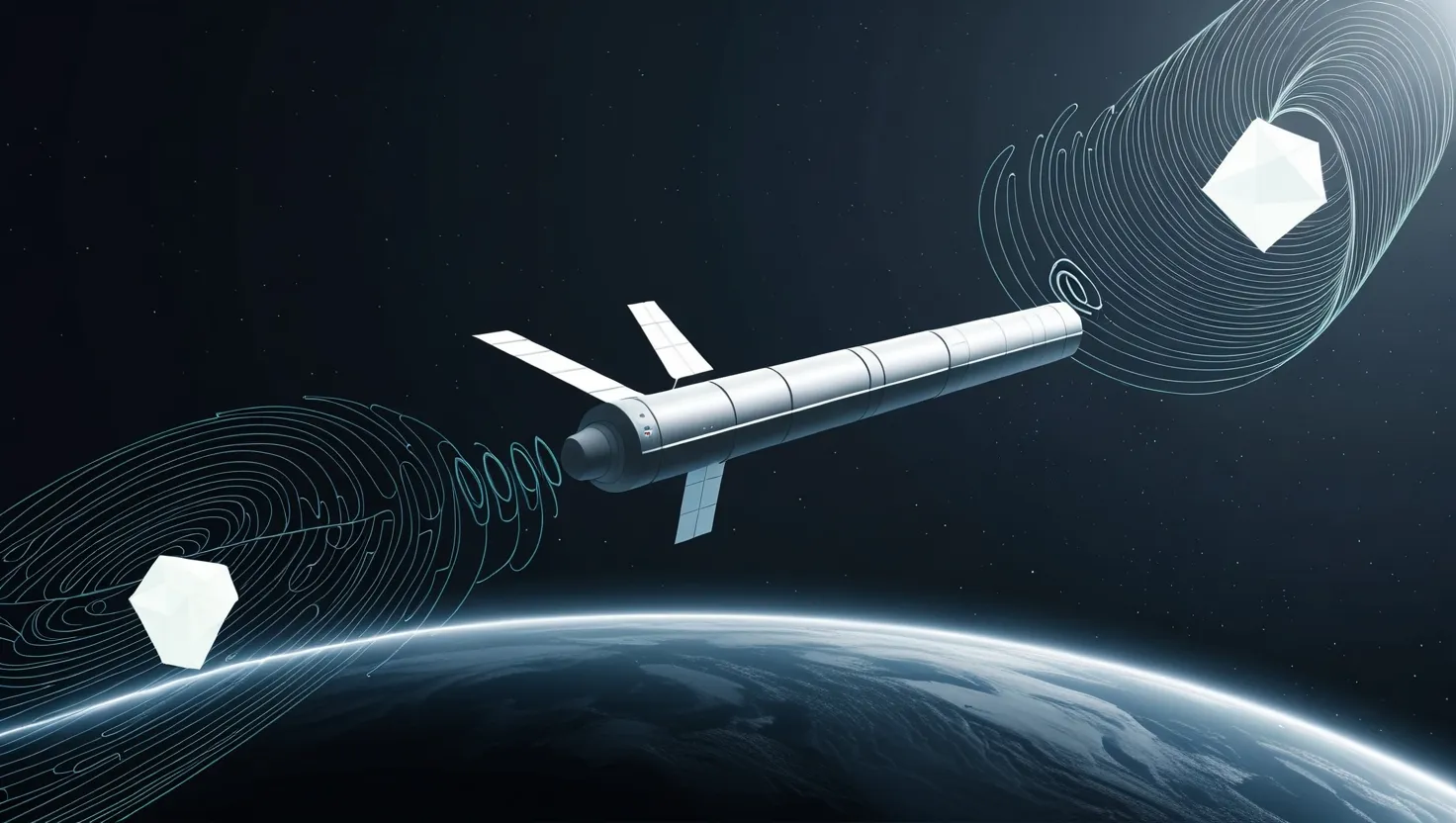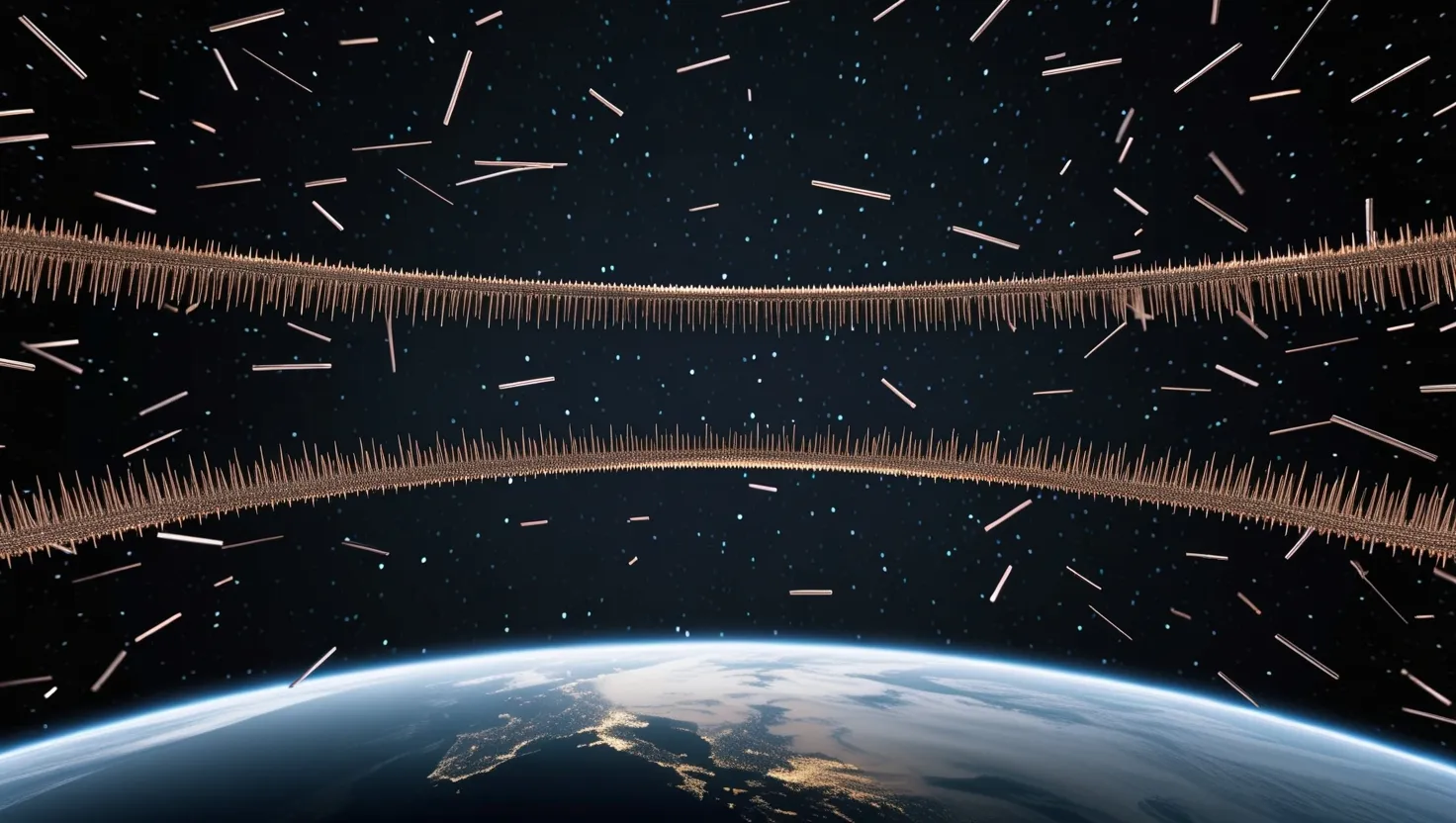The Enigma of Ancient Civilizations: Extraterrestrial Influence or Human Ingenuity?
Throughout history, humans have been fascinated by the idea that we might not be alone in the universe. This curiosity has led to countless theories about extraterrestrial life and its potential influence on our planet. One of the most intriguing and controversial ideas is the ancient astronauts hypothesis, which suggests that aliens might have played a role in shaping our ancient civilizations.
Let’s dive into this captivating topic and explore some of the most compelling evidence, as well as the skepticism surrounding it. It’s a journey that’ll take us from the dusty plains of Egypt to the mysterious lines of Nazca, and even to the realm of myth and legend.
The Coso Artifact: A Spark of Controversy
Picture this: You’re out for a hike in the California desert, and you stumble upon a weird rock. Inside, there’s something that looks like it doesn’t belong – a metal object that seems way too advanced for its surroundings. That’s pretty much what happened with the Coso Artifact back in the 1960s.
This strange find got people’s imaginations running wild. Was it an ancient electronic device left behind by alien visitors? It sure seemed that way at first. But, as it turns out, the truth was a bit less exciting. After some serious investigation, it was revealed to be a 1920s-era Champion spark plug. Yeah, talk about a letdown, right?
But here’s the thing – even though the Coso Artifact turned out to be something pretty ordinary, it still represents our endless curiosity about the possibility of extraterrestrial influence. It’s like we’re always hoping to find that one piece of evidence that proves we’re not alone.
Monumental Mysteries: Ancient Structures That Boggle the Mind
Now, let’s talk about some of the big guns in the ancient astronaut theory – those massive, mind-blowing structures that seem to defy explanation. We’re talking about the Egyptian pyramids, the giant heads of Easter Island, and the intricate stone carvings at Pumapunku in Bolivia.
Take the pyramids of Giza, for example. These massive structures are so precisely built that it’s hard to imagine how ancient Egyptians pulled it off without modern technology. The stones are cut with incredible accuracy and lined up perfectly. It’s no wonder some folks think there must have been some extraterrestrial help involved.
And don’t even get me started on those Easter Island statues. How did a small group of people manage to carve and move these enormous stone figures? It’s questions like these that keep the ancient astronaut theory alive and kicking.
Erich von Däniken: The Man, The Myth, The Controversy
If you’ve ever dipped your toes into the world of ancient astronaut theories, you’ve probably come across the name Erich von Däniken. This guy has made a career out of suggesting that aliens have been influencing Earth for millennia.
Von Däniken looks at ancient artifacts and structures and sees evidence of advanced technology and alien encounters everywhere. He’s even claimed that the sarcophagus lid of Maya ruler Pacal the Great shows an astronaut in a spaceship. Pretty wild, right?
But here’s the catch – while von Däniken’s ideas are fascinating, they’re not exactly embraced by mainstream archaeologists and historians. In fact, most experts have debunked a lot of his claims. Still, you’ve got to admire the guy’s imagination and the way he’s captured people’s attention.
The Nazca Lines: Ancient Alien Airstrip or Earthly Artwork?
Let’s hop over to Peru for a moment and check out the Nazca Lines. If you’ve never seen them, picture massive designs etched into the desert floor – we’re talking huge animals, geometric shapes, and even what some people claim are runways for alien spacecraft.
These enormous geoglyphs have baffled researchers for years. How did the ancient Nazca people create such precise and large-scale designs without being able to see them from above? It’s questions like these that make some folks think, “Hey, maybe aliens were involved here.”
But before we go full Ancient Aliens on this one, it’s worth noting that most experts believe the Nazca Lines were created using some pretty clever, but decidedly human, surveying techniques. No need for extraterrestrial assistance after all.
Legends and Myths: When Stories Meet the Stars
It’s not just physical artifacts and structures that fuel the ancient astronaut theory. There are tons of legends and myths from cultures all around the world that describe encounters with beings from the sky or other worlds.
Take the Japanese legend of the “Rock Ship of Masuda,” for example. This story tells of a spacecraft landing in ancient times, with a mysterious woman emerging to chat with some local fishermen before zipping off again. Pretty cool, right?
But here’s the thing – while these stories are fascinating, they’re generally accepted as myths rather than historical facts. That doesn’t make them any less interesting, though. These tales give us a glimpse into how our ancestors tried to make sense of the world around them.
The Technology Conundrum: Where Did It All Come From?
One of the big questions that the ancient astronaut theory tries to answer is: how did ancient civilizations develop such advanced technologies and knowledge? If we accept that some ancient cultures had access to mind-blowing tech, where did it come from?
Some folks suggest that this knowledge was inherited from previous, more advanced civilizations that have since disappeared from history. Others propose that it came from direct contact with alien beings. It’s like trying to solve a massive historical puzzle with some of the pieces missing.
Out-of-Place Artifacts: When History Doesn’t Add Up
Ever heard of out-of-place artifacts? These are objects that seem to be from a different time period or technological era than the one they were found in. They’re like little historical anomalies that make us scratch our heads and go, “Huh?”
One famous example is the ancient Baghdad batteries. These artifacts, dating back to around 250 BCE, look suspiciously like primitive electrical devices. Some people see this as evidence of advanced electrical knowledge way before its time. But hold your horses – most experts think these were probably used for simple experiments or medical treatments, not powering ancient alien tech.
The Power of Imagination: Why We Love the Ancient Astronaut Theory
Even though there’s no concrete evidence supporting the ancient astronaut hypothesis, it continues to captivate people’s imaginations. I mean, who doesn’t love the idea that our ancestors might have had a little help from beyond the stars?
This fascination has inspired countless books, documentaries, and TV shows. Just look at the History Channel’s “Ancient Aliens” series. It’s like a buffet of speculative goodness, exploring sites and artifacts from around the world through the lens of extraterrestrial influence.
The Search for Truth: A Never-Ending Journey
At the end of the day, while the idea of hidden alien artifacts unlocking the mysteries of ancient civilizations is super intriguing, it remains largely speculative. Most of the evidence can be explained by natural processes, human ingenuity, or the limitations of our current understanding.
But you know what? The debate itself is valuable. It reminds us of how much we still have to learn about our ancient past and the incredible achievements of our ancestors. Whether or not we find proof of extraterrestrial influence, the journey of exploration and discovery is filled with fascinating stories and mysterious artifacts.
So, the next time you hear about an ancient structure or artifact that seems too advanced for its time, let your imagination run wild for a moment. But also remember that the truth, while perhaps not out there in the stars, is certainly hidden in the layers of history waiting to be uncovered.
Who knows? Maybe one day we’ll find that smoking gun evidence of ancient alien contact. Until then, we’ll keep digging, questioning, and wondering about the mysteries of our past. After all, isn’t that what makes history so darn exciting?






